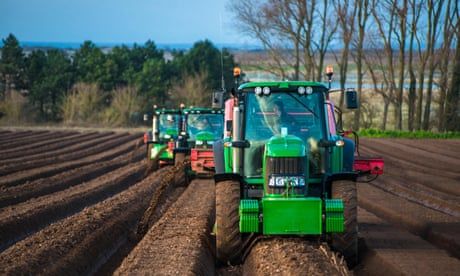
Brexit, the cost of living and the climate crisis are all making farmers’ lives much more difficult. Taxing us is not the answer
- Tom Fairfax farms Mindrum Farm in Northumberland
Last year, Keir Starmer looked farmers in the eye at the annual National Farmers’ Union (NFU) conference and said he knew what it meant to lose a farm. It is “not like losing any other business”, he said. “It can’t come back.” Since then, Labour has announced a number of new measures aimed at farmers, including dropping the inheritance tax exemption that many have enjoyed. This is a drastic shift for an already strained sector and has sparked heated debate among farmers I know. But one thing has been missing: an understanding of farming and the pressures it faces.
The modern UK farming industry has been shaped by decades of government policy aimed at ensuring we have enough food to survive. While agriculture isn’t directly state controlled, the government’s influence is felt through regulation and incentives. If you are old enough, you may remember rationing, which marked an era when governments prioritised access to cheap calories, driving the shift toward intensive farming. This focus, backed by successive governments, led to farmers ramping up production by using new technology and infrastructure, and chemicals such as DDT and glyphosate. But cheap food had vast environmental and social costs, posing a drastic threat to the sector’s sustainability and resilience in the long term, as soils were depleted and biodiverse habitats gave way to monocultures.
Tom Fairfax farms Mindrum Farm, a regenerative mixed farm in the Cheviot foothills in Northumberland
Continue reading...